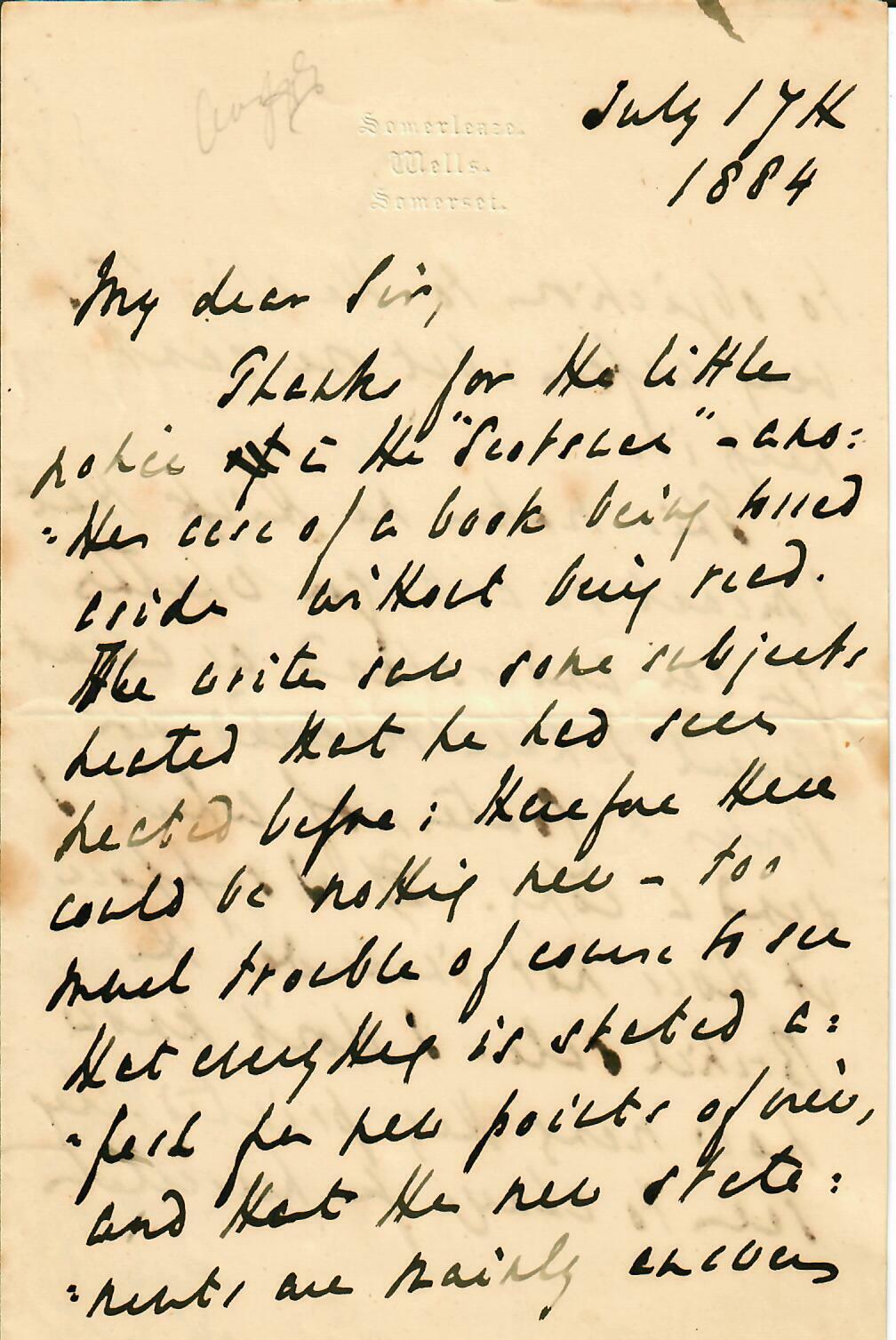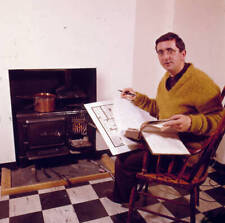When you click on links to various merchants on this site and make a purchase, this can result in this site earning a commission. Affiliate programs and affiliations include, but are not limited to, the eBay Partner Network.
Up for sale a VERY RARE! "English Historian" Edward Freeman Hand Written 3 Page Letter Dated 1884.
August 1823 – 16 March 1892) was an English historian, architectural
artist, and Liberal politician
during the late-19th-century heyday of Prime Minister of the United Kingdom William Gladstone, as well as a one-time candidate for
Parliament. He held the position of Regius
Professor of Modern History at Oxford, where he tutored Arthur Evans; later he and Evans would be activists in
the Balkan uprising of Bosnia and the Ottoman Empire. After the
marriage of his daughter Margaret to Evans, he and Evans collaborated on the
fourth volume of his History of Sicily. He was a prolific writer,
publishing 239 distinct works. One of his best known is his magnum opus, The History
of the Norman Conquest of England (published in 6 volumes,
1867–1879). Both he and Margaret died before Evans purchased the land from
which he would excavate the Palace of Knossos. Freeman was born at Metchley Abbey in Harborne, Warwickshire (now a suburb of Birmingham).[3] His parents, John Freeman and Mary Ann
(Carless), used the Latin name of the month in which he was born as his middle
name. They were a family of modest means; however, the paternal grandfather, Joseph
Freeman (about 1768–1822), had been a wealthy man, and the owner of
Pedmore Hall. On his death, his will was disputed, and lawyers' fees consumed
the bulk of the estate. Edward's father, the oldest son, and his two paternal
uncles, Keelinge and Joseph, received little to sustain them. Edward's mother,
Mary Anne, née Carless (or Carlos), had noble ancestry, descending through her
father, William, then residing near Birmingham, from the same Colonel William
Carless who had assisted the future Charles II as he hid
from his enemies in the branches of the Royal Oak after the Battle of Worcester, 1651,
the last of the English Civil War. Mary
Anne's family still displayed the coat-of-arms given to them. The family was
never in good health. They delayed baptising Edward for a year, hoping to avoid
public exposure to contagious diseases. The family was struck by tragedy in
November 1824, when the father died of unknown disease, the mother died four
days later of tuberculosis, and the oldest daughter, Mary Anne, then age 14,
died of unknown disease the same day, 25 November. Edward's paternal
grandmother, Emmete Freeman, immediately took charge of the three survivors,
Edward and his two sisters, Sarah and Emma, aged 13 and 10 respectively,
bringing them to her home at Weston-super-Mare. Emma died in 1826 when Edward was three
years old. Freeman was educated at private schools and by a private tutor. Even
as a boy, he was interested in religious matters, history and foreign politics.
He won a scholarship to Trinity College, Oxford,
and a second class in the degree examination, and was elected fellow of his
college (1845). While at Oxford he was much influenced by the High Church movement, and thought seriously of taking
orders, but abandoned the idea. He married Eleanor Gutch (1818–1903) daughter
of his former tutor, the Reverend Robert Gutch,[6] on 13 April 1847 at Seagrave, Leicestershire, and entered on a life of study. From
1886 Freeman was forced by ill health to spend much of his time abroad. In
February 1892 he visited Spain in company with his wife and two younger
daughters. He fell ill at Valencia on 7 March, but on the 9th
went on to Alicante, where his illness proved to
be smallpox. He died at Alicante on 16 March, and was buried in
the Protestant cemetery there (now referred to as the "British
cemetery" section of the Cementerio de Alicante). He left two sons and
four daughters. The Latin inscription on his gravestone was written by his
son-in-law, Sir Arthur Evans.







